
Harare: The Sunshine City of Zimbabwe
Harare, the capital city of Zimbabwe, is a vibrant and bustling metropolis known for its beautiful parks, contemporary art, and rich cultural heritage. Often referred to as the Sunshine City, Harare enjoys a pleasant climate with sunny skies almost all year round, making it an ideal destination for outdoor enthusiasts and nature lovers alike. The city is home to a range of attractions that cater to diverse interests. The National Gallery of Zimbabwe showcases an impressive collection of local and international art, offering a glimpse into the creative spirit of the country. Meanwhile, the Mbare Musika market provides an authentic experience of Zimbabwean daily life, with stalls overflowing with fresh produce, handmade crafts, and vibrant fabrics. Nature lovers will find solace in the city's many green spaces, such as the Harare Gardens and the Mukuvisi Woodlands, where visitors can enjoy picnics, bird watching, and even spot some local wildlife. For those interested in history, the Zimbabwe Museum of Human Sciences offers fascinating exhibits on the country's past, including the iconic soapstone bird sculptures that are symbolic of Zimbabwe's heritage. Harare also boasts a lively dining scene, with a variety of restaurants serving both traditional Zimbabwean dishes and international cuisine. From the bustling streets of the city center to the tranquil suburbs, Harare offers a unique blend of urban energy and natural beauty, making it a must-visit destination in Southern Africa.
Local tips in Harare
- Visit the National Gallery of Zimbabwe for a dose of local and international art.
- Explore Mbare Musika market to experience the local culture and buy unique souvenirs.
- Spend a day at Mukuvisi Woodlands to enjoy nature and spot wildlife.
- Try traditional Zimbabwean dishes at local restaurants for an authentic culinary experience.
- Always carry some cash, as not all places accept cards.
- Use bottled water for drinking to avoid any health issues.
Harare: The Sunshine City of Zimbabwe
Harare, the capital city of Zimbabwe, is a vibrant and bustling metropolis known for its beautiful parks, contemporary art, and rich cultural heritage. Often referred to as the Sunshine City, Harare enjoys a pleasant climate with sunny skies almost all year round, making it an ideal destination for outdoor enthusiasts and nature lovers alike. The city is home to a range of attractions that cater to diverse interests. The National Gallery of Zimbabwe showcases an impressive collection of local and international art, offering a glimpse into the creative spirit of the country. Meanwhile, the Mbare Musika market provides an authentic experience of Zimbabwean daily life, with stalls overflowing with fresh produce, handmade crafts, and vibrant fabrics. Nature lovers will find solace in the city's many green spaces, such as the Harare Gardens and the Mukuvisi Woodlands, where visitors can enjoy picnics, bird watching, and even spot some local wildlife. For those interested in history, the Zimbabwe Museum of Human Sciences offers fascinating exhibits on the country's past, including the iconic soapstone bird sculptures that are symbolic of Zimbabwe's heritage. Harare also boasts a lively dining scene, with a variety of restaurants serving both traditional Zimbabwean dishes and international cuisine. From the bustling streets of the city center to the tranquil suburbs, Harare offers a unique blend of urban energy and natural beauty, making it a must-visit destination in Southern Africa.
When is the best time to go to Harare?
Iconic landmarks you can’t miss
The Rainbow Towers Hotel and Conference Centre
Experience elegance at The Rainbow Towers Hotel and Conference Centre, where luxury meets Zimbabwean culture for an unforgettable stay in Harare.

Harare Gardens
Explore the lush landscapes of Harare Gardens, a serene park perfect for relaxation and cultural experiences in Zimbabwe's vibrant capital.
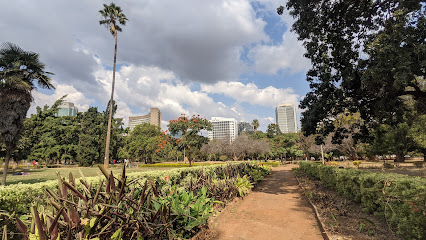
The Bronte Garden Hotel
Discover the peaceful haven of The Bronte Garden Hotel in Harare, where luxury meets nature in a beautiful garden setting.

Mukuvisi Woodlands
Explore the natural beauty of Mukuvisi Woodlands, a serene wildlife park in Harare, ideal for nature lovers and families seeking adventure.
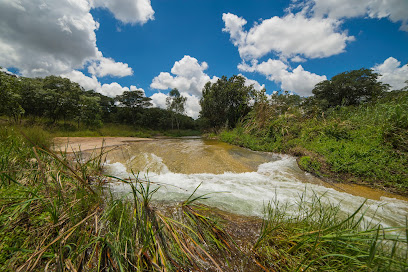
Pariah State Avondale
Discover the perfect blend of grill delights and refreshing cocktails at Pariah State Avondale, Harare's vibrant culinary destination.
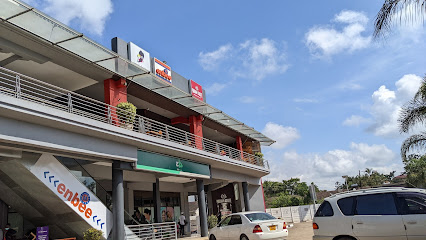
National Gallery of Zimbabwe
Explore the rich cultural heritage of Zimbabwe at the National Gallery, a hub for local and international art in Harare.
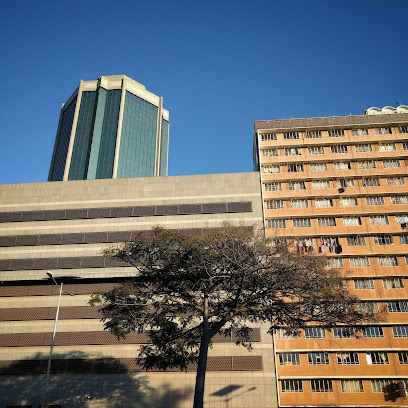
Lake Chivero Recreational Park
Explore the serene landscapes and vibrant wildlife of Lake Chivero Recreational Park, a nature lover's paradise just outside Harare.
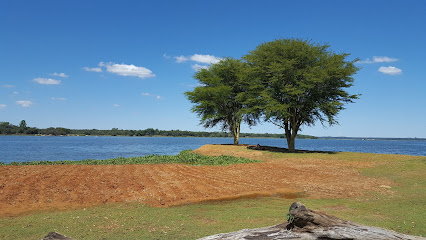
Great Wall
Experience authentic Chinese flavors at the Great Wall in Harare, where culinary excellence meets a welcoming atmosphere for all food lovers.
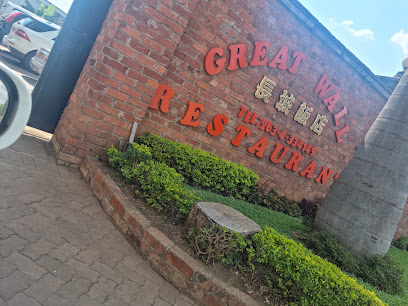
The Bottom Drawer
Discover the charm of The Bottom Drawer, a cozy cafe in Harare offering delectable breakfast options and a warm, inviting atmosphere.
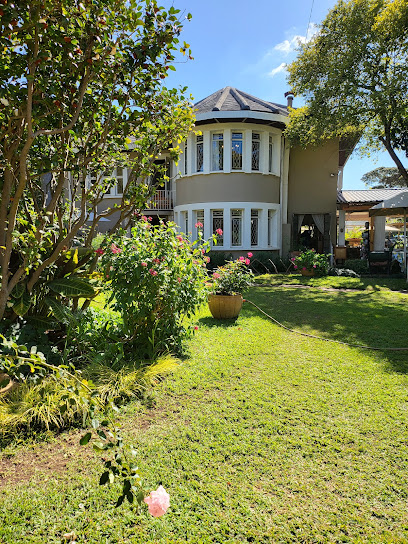
Harare Botanical Gardens
Explore the serene beauty of Harare Botanical Gardens, a lush sanctuary filled with vibrant flora, ideal for relaxation and exploration.
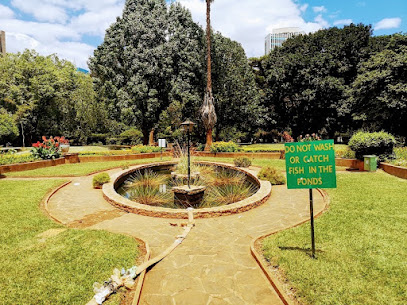
Kuimba Shiri Bird Park
Explore the beauty of nature at Kuimba Shiri Bird Park, a birdwatcher's paradise by Lake Chivero, offering relaxation and adventure for all ages.
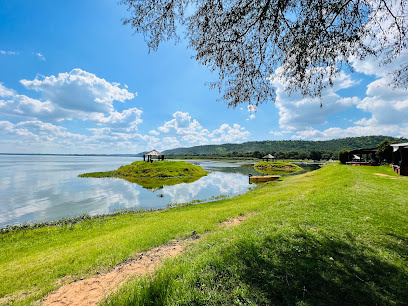
Zimbabwe Museum of Human Sciences
Discover the rich history and cultural heritage of Zimbabwe at the Zimbabwe Museum of Human Sciences, a must-visit attraction in Harare.
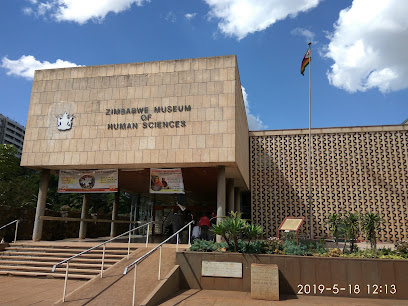
Hellenic Club of Harare
Discover the vibrant Greek culture at the Hellenic Club of Harare, featuring authentic cuisine, lively events, and a warm atmosphere.
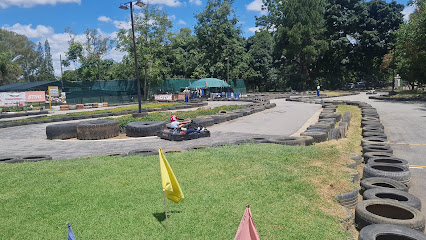
Africa Unity Square
Explore Africa Unity Square in Harare, a serene park filled with history, culture, and vibrant greenery, perfect for relaxation and exploration.
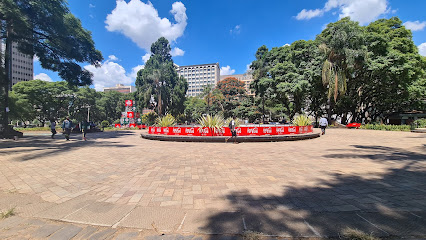
Haka Camp Game Park
Experience the beauty of African wildlife at Haka Camp Game Park, a top destination for nature lovers and adventure seekers in Harare, Zimbabwe.
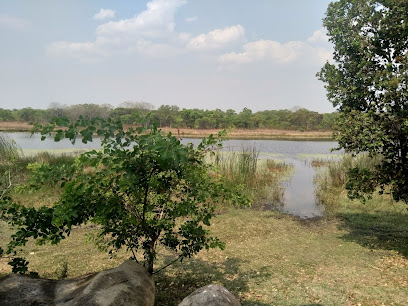
Unmissable attractions to see
Mukuvisi Woodlands
Explore Mukuvisi Woodlands, a serene wildlife park in Harare, offering a unique blend of nature, conservation, and family-friendly activities.
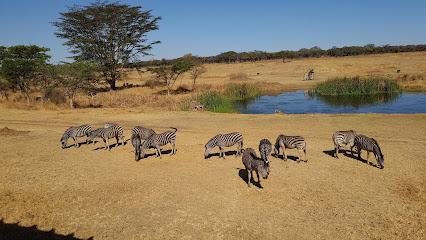
National Gallery of Zimbabwe
Explore the vibrant artworks and rich cultural heritage at the National Gallery of Zimbabwe in Harare, a must-visit destination for art lovers.
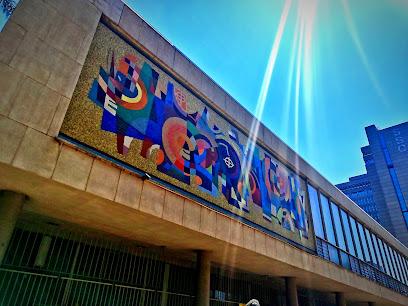
Lake Chivero Recreational Park
Discover the beauty of Lake Chivero Recreational Park, a serene escape filled with wildlife, water activities, and stunning landscapes in Zimbabwe.
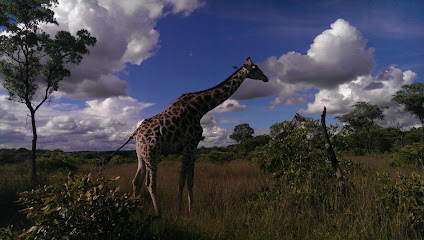
Kingfisher Park
Discover the tranquility and vibrant events at Kingfisher Park, a beautiful green oasis in the heart of Harare, ideal for relaxation and cultural experiences.
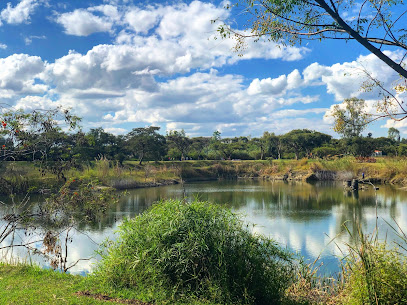
Zimbabwe Museum of Human Sciences
Explore the Zimbabwe Museum of Human Sciences for a captivating journey through history, culture, and the evolution of Zimbabwean society.
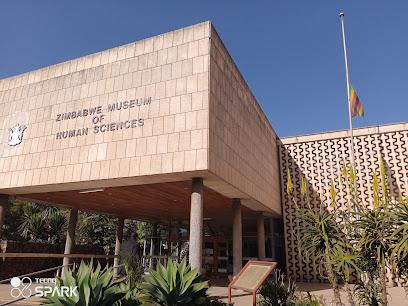
Ballantyne Park Conservancy
Explore the natural beauty and peaceful ambiance of Ballantyne Park Conservancy, a top tourist destination in Harare.
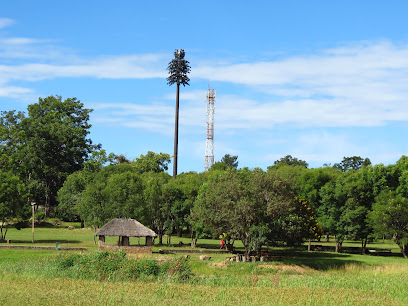
Tynwald Gardens
Discover Tynwald Gardens, a beautiful park in Harare, perfect for relaxation, picnics, and enjoying vibrant local culture amidst stunning natural beauty.
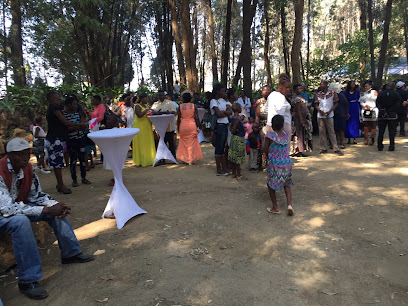
Home and office deco
Explore unique artisanal decor at Home and Office Deco in Harare, where local craftsmanship meets contemporary style.
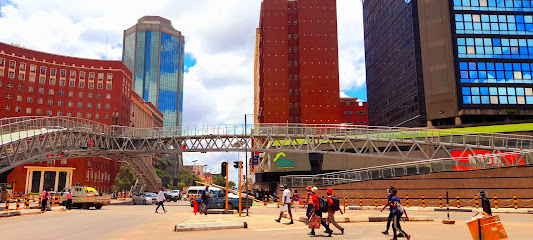
Dawnview Park
Experience the tranquility of Dawnview Park in Harare, a perfect retreat for nature lovers and families seeking relaxation among lush surroundings.
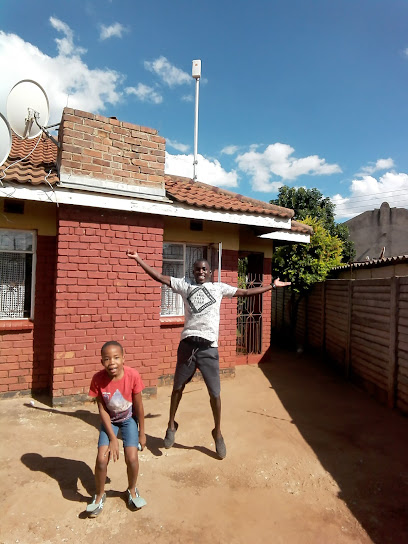
Museum Of African Liberation
Explore the Museum of African Liberation in Harare, a captivating journey through Africa's struggle for freedom and cultural identity.
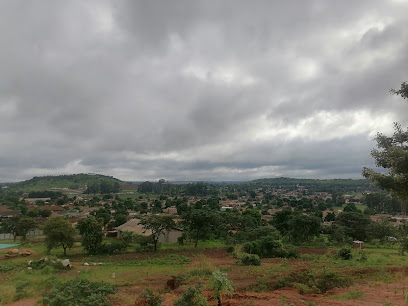
Epworth Balancing Rocks
Explore the stunning Epworth Balancing Rocks, a geological marvel in Zimbabwe that showcases nature's unique artistry and breathtaking landscapes.
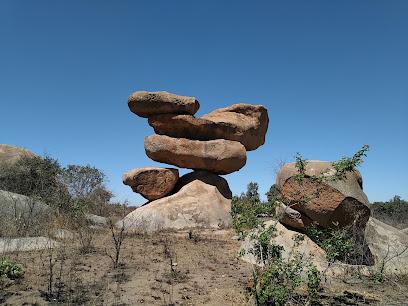
First Floor Gallery Harare
Discover contemporary Zimbabwean art at First Floor Gallery Harare, a vibrant hub showcasing local creativity and cultural expression.
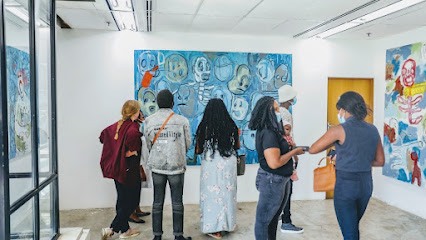
Balancing Rocks
Explore the breathtaking Balancing Rocks in Epworth, a true geological marvel that offers stunning views and adventurous hiking trails in Zimbabwe.
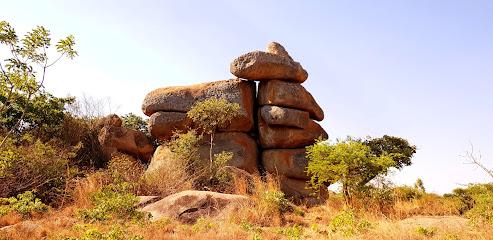
National Museums and Monuments of Zimbabwe
Explore Zimbabwe's rich cultural heritage and history at the National Museums and Monuments, a must-visit tourist attraction in Harare.
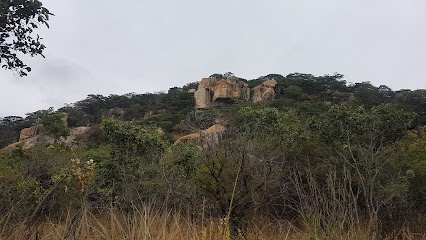
Dendera
Explore Dendera in Harare, a vibrant art gallery blending artistic expression with Zimbabwean culture and history.
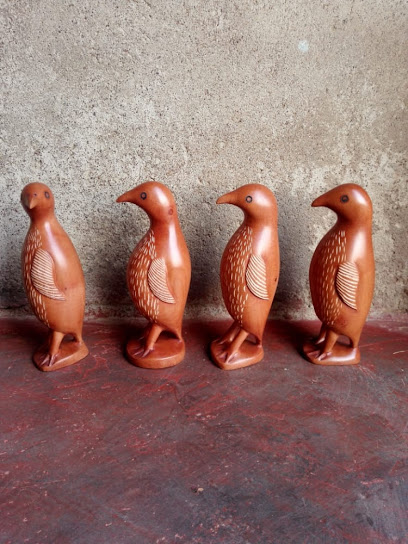
Essential places to dine
Queen of Hearts
Experience the vibrant culinary scene at Queen of Hearts in Harare - where local flavors meet exceptional service in an inviting atmosphere.
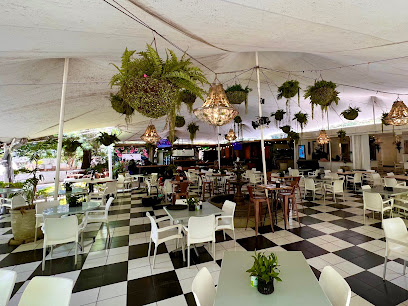
Chop Chop Grill House
Experience the vibrant flavors of Zimbabwe at Chop Chop Grill House in Harare - where culinary tradition meets modern flair.
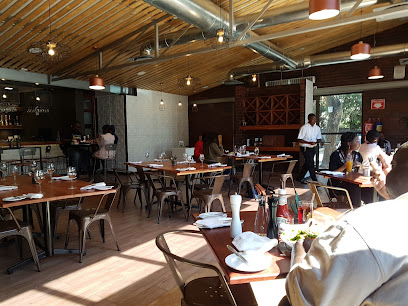
Gavas Restaurant
Experience authentic African cuisine at Gavas Restaurant in Harare's Belgravia Sports Club – where flavor meets tradition.
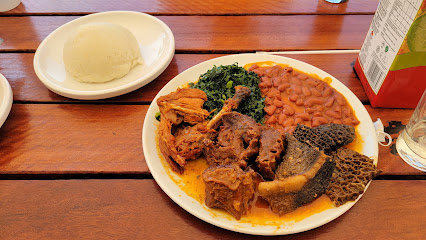
The Jam Tree
Discover the vibrant flavors of Harare at The Jam Tree - where delightful grills meet lively entertainment.
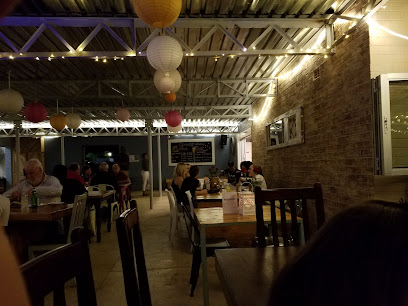
Cafe Nush Avondale
Discover culinary delights at Café Nush Avondale in Harare - where local flavors meet international cuisine in a cozy setting.
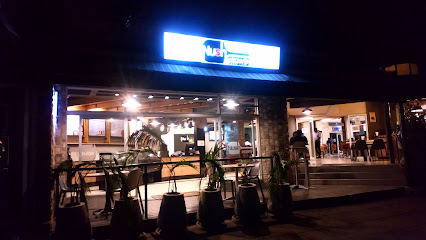
St Elmo's
Experience the best of Italian cuisine and succulent steaks at St Elmo's in Harare—perfect for families and food lovers.
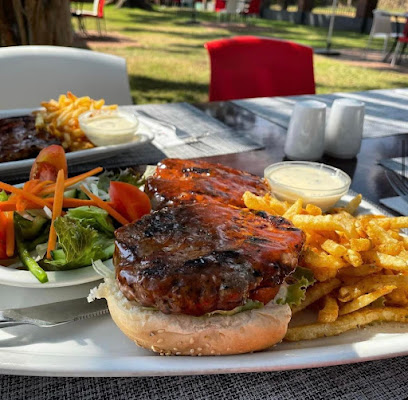
Paula's Place
Experience authentic Portuguese cuisine in Harare at Paula's Place - where every dish tells a flavorful story.
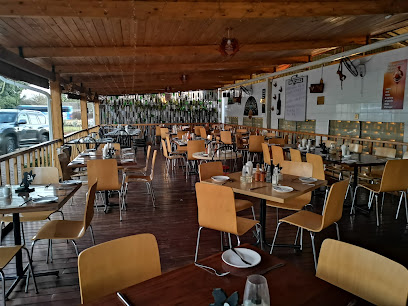
Coimbra Restaurant
Discover authentic Portuguese cuisine at Coimbra Restaurant in Harare – a delightful blend of tradition and taste awaits every visitor.
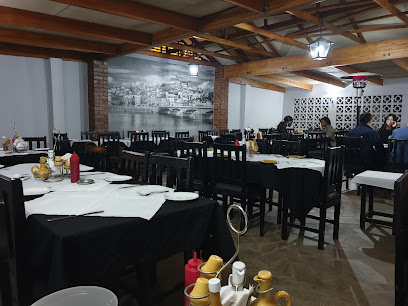
Alechi Portuguese Grill
Experience authentic Portuguese flavors at Alechi Portuguese Grill in Harare - where every dish tells a story.
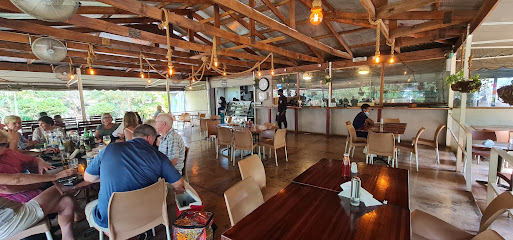
Tin Roof Bucket Bar and Bistro
Experience delightful grilled cuisine at Tin Roof Bucket Bar and Bistro in Harare – where vibrant flavors meet a lively atmosphere.
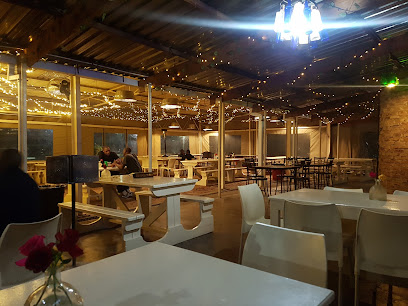
Cafe Veldemeers
Discover Café Veldemeers: Where fresh local flavors meet warm hospitality in the heart of Harare.
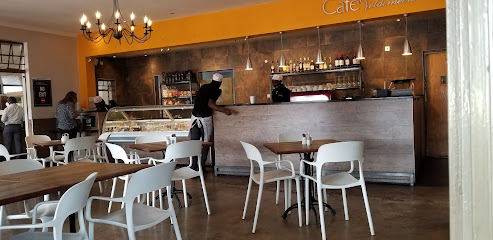
Casa Mia Ristorante Pizzeria
Discover Casa Mia Ristorante Pizzeria in Harare: where Italian flavors meet local charm in a delightful dining experience.
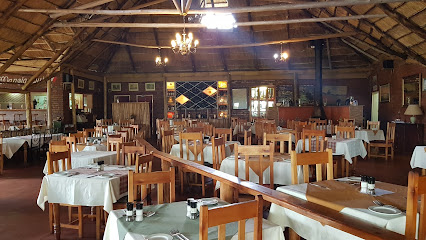
Victoria 22 Restaurant
Experience exquisite cuisine at Victoria 22 Restaurant in Harare - where local flavors meet international sophistication.
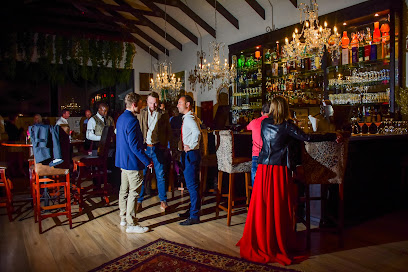
Chang Thai Restaurant
Experience authentic Thai cuisine at Chang Thai Restaurant in Harare—where every dish is crafted with passion and tradition.
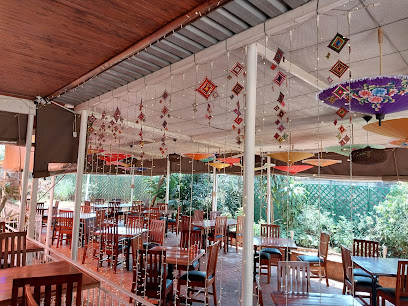
Alo Alo Restaurant
Discover the exquisite flavors of Zimbabwe at Alo Alo Restaurant in Harare – where culinary tradition meets modern dining.
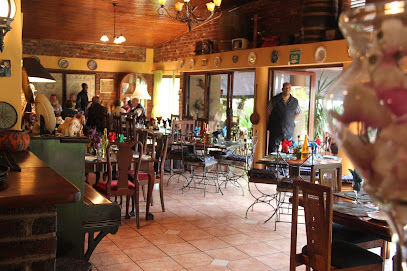
Markets, malls and hidden boutiques
Sam Levy's Village
Explore Sam Levy's Village, a vibrant shopping mall in Harare offering diverse shops, delightful dining, and a taste of local culture.
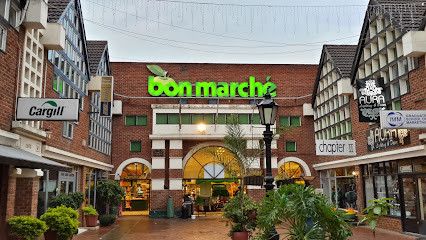
Longcheng Plaza
Experience the vibrant shopping and dining at Longcheng Plaza, Harare's premier shopping destination with diverse stores and local cuisine.
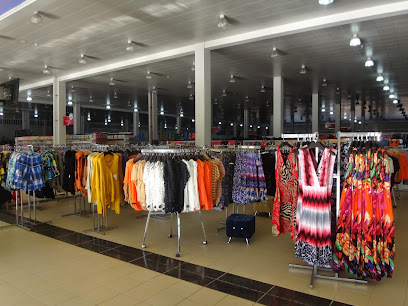
Arundel Village
Explore Arundel Village in Harare for a unique shopping and dining experience amidst a vibrant community atmosphere.
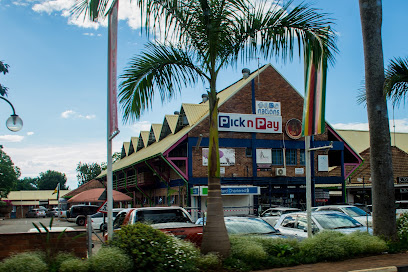
Newlands Shopping Centre
Discover the vibrant Newlands Shopping Centre in Harare, offering a diverse shopping experience with local and international brands, dining, and a lively atmosphere.
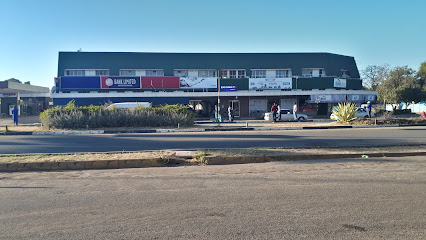
Chisipite Shopping Centre
Explore Chisipite Shopping Centre in Harare for a delightful blend of shopping, dining, and local culture in a vibrant atmosphere.
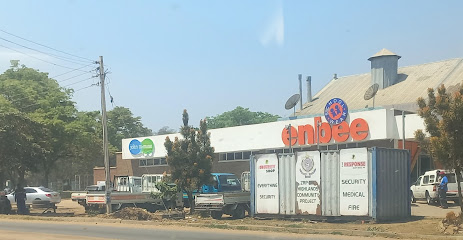
Galaxy Mall Harare
Experience the vibrant shopping and culinary delights of Galaxy Mall Harare, where local culture meets modern retail in a lively atmosphere.
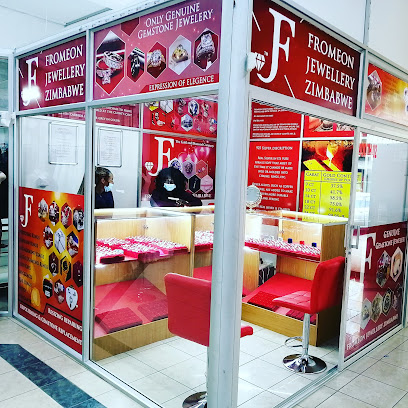
Jet Store First Street
Explore the latest trends and unique styles at Jet Store First Street, Harare's premier clothing destination for fashion enthusiasts.
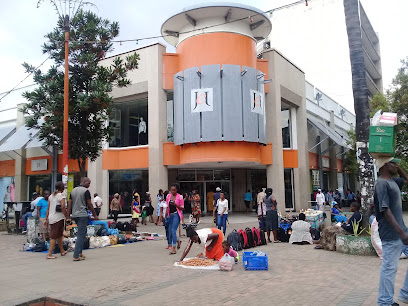
Kwame Mall: shop 50
Explore Kwame Mall in Harare - A vibrant shopping destination for baby clothing and unique local finds, perfect for families and tourists alike.
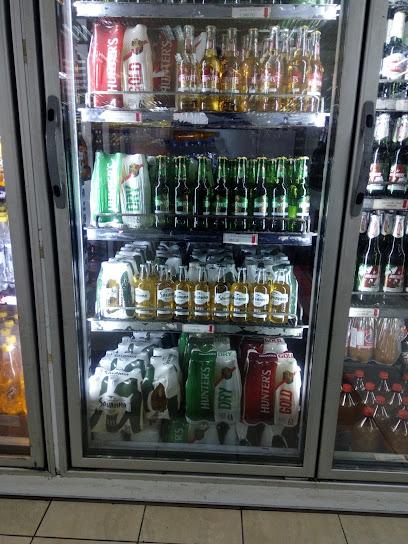
CeeNine
Discover the essence of Zimbabwean culture at CeeNine, a vibrant store in Harare offering unique crafts, fashion, and souvenirs for every traveler.

Malvern Corner
Experience the vibrant shopping and dining scene at Malvern Corner in Harare, where local culture meets modern convenience.

South Samora
Discover South Samora: Harare's premier gift shop for unique souvenirs, custom gifts, and personalized engraving services.
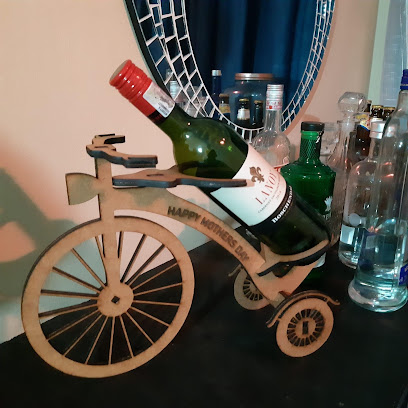
Axecure Sneakers
Explore Axecure Sneakers in Harare for stylish footwear and trendy clothing that perfectly captures the essence of local fashion.
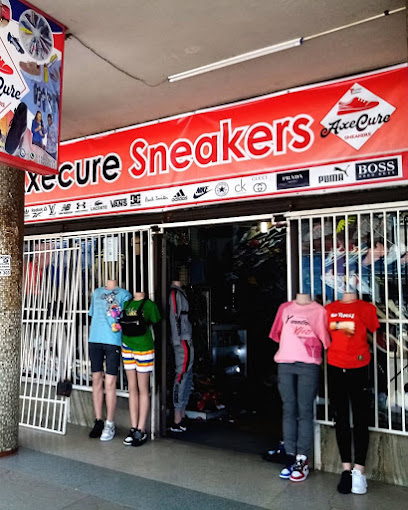
Rado Arts
Explore Rado Arts in Harare for authentic Zimbabwean crafts and unique souvenirs that reflect the rich culture and heritage of Zimbabwe.
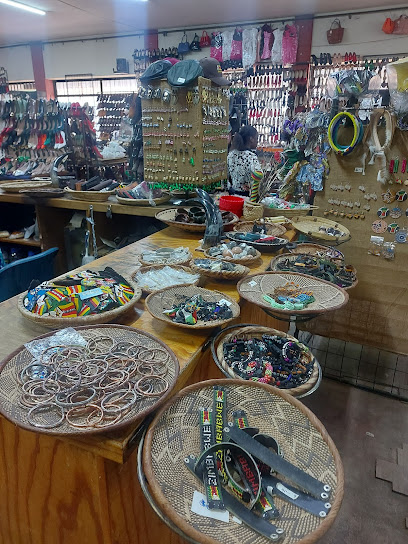
KUMBA
Explore KUMBA in Harare for unique gifts, beautiful art, and handcrafted furniture that showcase Zimbabwean culture and craftsmanship.
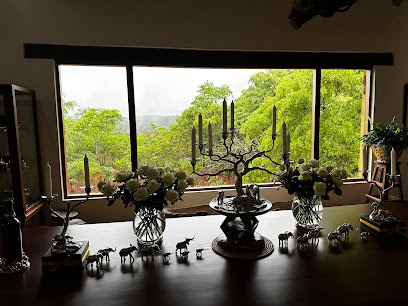
Crazy Mix Store Toys and Gifts
Explore the vibrant Crazy Mix Store in Harare – your go-to destination for toys, gifts, and unique home goods that spark joy and creativity.
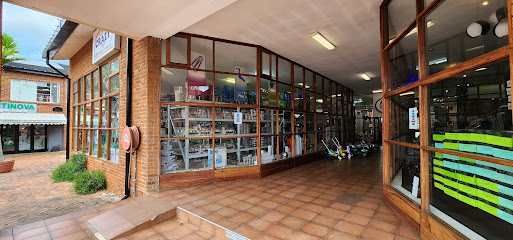
Essential bars & hidden hideouts
The Jam Tree
Experience the lively atmosphere and diverse menu at The Jam Tree, Harare's ultimate bar and grill destination for food and fun.
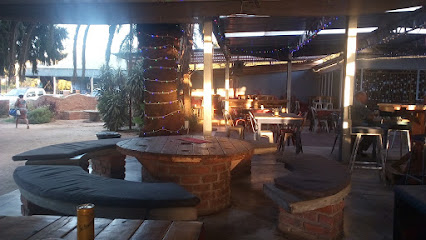
Tin Roof Bucket Bar and Bistro
Experience the vibrant flavors and lively atmosphere at Tin Roof Bucket Bar and Bistro in Harare, where culinary delights meet local culture.
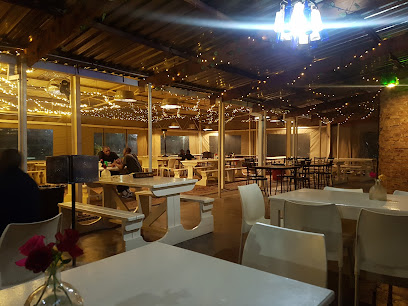
Jongwe Corner Bar
Discover the lively ambiance of Jongwe Corner Bar in Harare, a perfect spot for drinks, local culture, and unforgettable memories.
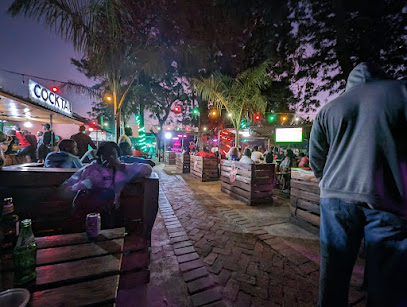
Eclipse Sports Bar and Grill(ECLIPSE AFRICAN CUISINE RESTAURANT)
Discover the vibrant atmosphere of Eclipse Sports Bar and Grill, where delicious African cuisine meets exciting entertainment in Harare.
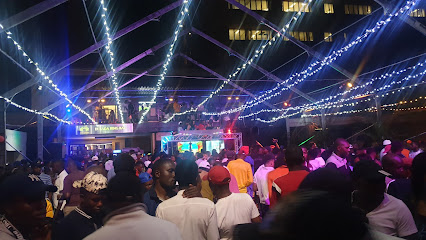
The Centurion.
Experience the vibrant atmosphere of The Centurion, Harare's top sports bar, offering delicious cuisine and exciting live sports events.
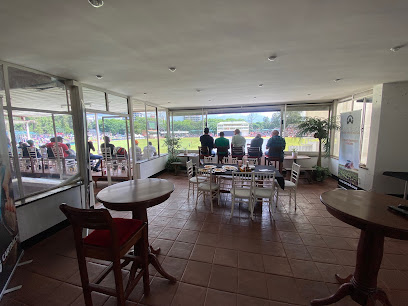
Big Apple Night Club
Discover the vibrant nightlife at Big Apple Night Club in Harare, where delicious grills, refreshing drinks, and lively music come together for an unforgettable evening.
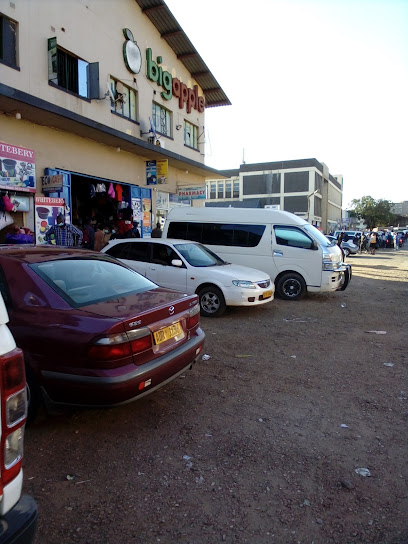
The Q Bar
Experience the vibrant flavors of Harare at The Q Bar, a premier grill and bar offering exquisite dishes and a lively atmosphere.
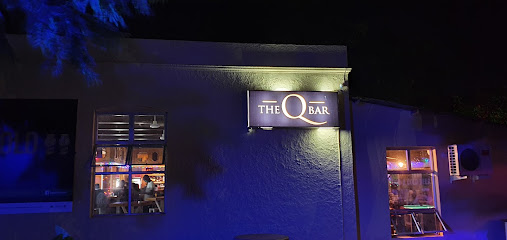
On The Roof
Experience Harare's nightlife from the heights at On The Roof, where stunning views and a vibrant atmosphere await.
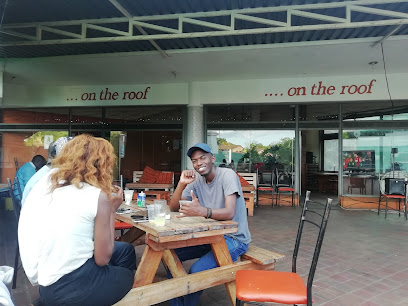
Duriro Bar
Experience the vibrant flavors of Harare at Duriro Bar, where delicious grilling meets a lively atmosphere.
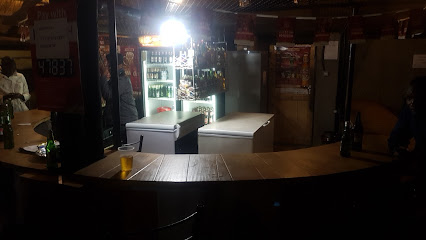
Saints 'n' Sinners
Discover the lively ambiance of Saints 'n' Sinners in Harare, where exquisite dining meets vibrant nightlife, offering an unforgettable experience.
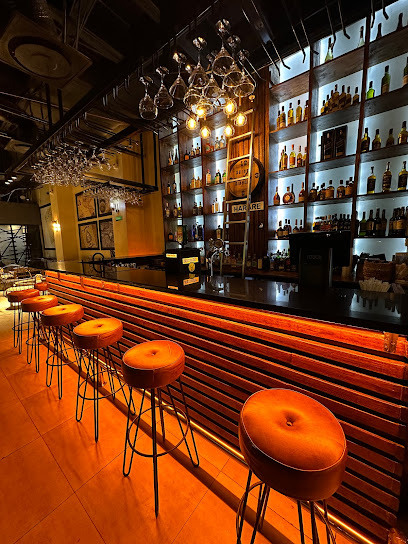
KONKE RESTAURANT AND BAR
Experience the vibrant flavors and lively atmosphere at Konke Restaurant and Bar, your perfect dining destination in Harare.
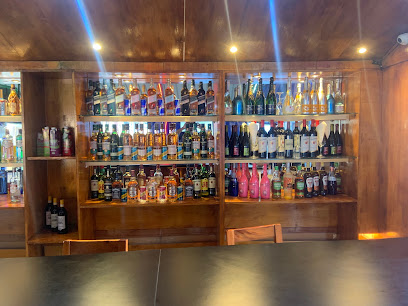
Thistle Pub & Grill
Experience the vibrant atmosphere of Thistle Pub & Grill in Harare, where local culture meets refreshing drinks and friendly company.

Warren Bar
Experience the vibrant atmosphere of Warren Bar, a charming beer garden in Harare, perfect for unwinding with friends and local brews.

Wyrd Champagne & Whisky Bar
Discover the elegance of Wyrd Champagne & Whisky Bar in Harare, where premium drinks meet a sophisticated ambiance for an unforgettable night.
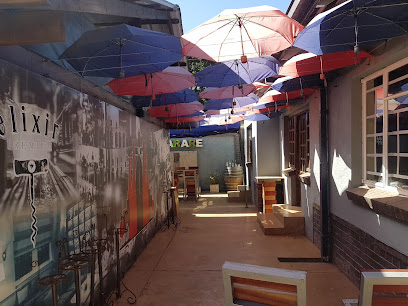
Local Phrases
-
- HelloMhoro
[M-ho-ro] - GoodbyeKwaheri
[Kwa-he-ri] - YesEhe
[E-he] - NoAa
[A-a] - Please/You're welcomeNdatenda
[N-da-ten-da] - Thank youNdinotenda
[N-di-no-ten-da] - Excuse me/SorrySamaita
[Sa-mai-ta] - How are you?Makadii?
[Ma-ka-di-i] - Fine. And you?Nzuri. Ndiwe here?
[N-zu-ri. N-di-we he-re] - Do you speak English?Wapindirana neEnglish here?
[Wa-pin-di-ra-na ne-En-glish he-re] - I don't understandHandizive
[Han-di-zi-ve]
- HelloMhoro
-
- I'd like to see the menu, pleaseNdakuda kuziva menu, musanyeperwe
[N-da-ku-da ku-zi-va me-nu, mu-sa-nye-pe-rwe] - I don't eat meatHandidi kudya nyama
[Han-di-di ku-dya nya-ma] - Cheers!Mangwanani!
[Man-gwa-na-ni] - I would like to pay, pleaseNdakuda kuitira mari, musanyeperwe
[N-da-ku-da ku-i-ti-ra ma-ri, mu-sa-nye-pe-rwe]
- I'd like to see the menu, pleaseNdakuda kuziva menu, musanyeperwe
-
- Help!Taurai!
[Tau-rai] - Go away!Tora zvako!
[To-ra zva-ko] - Call the Police!Daira mapurisa!
[Dai-ra ma-pu-ri-sa] - Call a doctor!Daira dokita!
[Dai-ra do-ki-ta] - I'm lostNdatisvitsa
[N-da-ti-svi-tsa] - I'm illNdirikusvika
[N-di-ri-ku-svi-ka]
- Help!Taurai!
-
- I'd like to buy...Ndakuda kubika...
[N-da-ku-da ku-bi-ka] - I'm just lookingNdichida kubvunza
[N-di-chi-da ku-bvun-za] - How much is it?Zvinoita marii?
[Zvi-noi-ta ma-ri-i] - That's too expensiveIzvi zvinoita marii kupera
[Iz-vi zvi-noi-ta ma-ri-i ku-pe-ra] - Can you lower the price?Unogona kuwedzera pfuma?
[U-no-go-na ku-we-dze-ra pfu-ma]
- I'd like to buy...Ndakuda kubika...
-
- What time is it?Saa here?
[Sa-a he-re] - It's one o'clockSaora yekutanga
[Sa-o-ra ye-ku-tan-ga] - Half past (10)Chete kumagumbezi (10)
[Che-te ku-ma-gum-be-zi (10)] - MorningMukomana
[Mu-ko-ma-na] - AfternoonMuvhuro
[Mu-vhu-ro] - EveningMazuva ano
[Ma-zu-va a-no] - YesterdayNezuro
[Ne-zu-ro] - TodayNhasi
[Nha-si] - TomorrowMangwana
[Man-gwa-na] - 1Mbudzi
[M-bud-zi] - 2Gumi
[Gu-mi] - 3Gumi nhariri
[Gu-mi nha-ri-ri] - 4Gumi nhatu
[Gu-mi nha-tu] - 5Gumi nhaanhu
[Gu-mi nha-an-hu] - 6Gumi nhanhatu
[Gu-mi nha-nha-tu] - 7Gumi nhanhomwe
[Gu-mi nha-nho-mwe] - 8Gumi nhasedzi
[Gu-mi nha-se-dzi] - 9Gumi nhasere
[Gu-mi nha-se-re] - 10Gumi nharwadzi
[Gu-mi nha-rwa-dzi]
- What time is it?Saa here?
-
- Where's a/the...?Zviri kupi...?
[Zvi-ri ku-pi] - What's the address?Address rinonzi here?
[Ad-dres ri-no-nzi he-re] - Can you show me (on the map)?Unogona kunandisa (pamap)?
[U-no-go-na ku-nan-di-sa (pa-map)] - When's the next (bus)?Bus inonzi here?
[Bus i-no-nzi he-re] - A ticket (to ....)Ticket (kumusha kuno ...)
[Ti-cket (ku-mu-sha ku-no)]
- Where's a/the...?Zviri kupi...?
History of Harare
-
Harare's history dates back centuries before colonial times. Initially, the region was inhabited by Shona-speaking people who built small settlements. These early communities practiced agriculture, hunting, and gathering, creating a vibrant culture that laid the foundation for the city's future.
-
In 1890, the British South Africa Company, led by Cecil Rhodes, established a fort in the area, naming it Fort Salisbury after the then British Prime Minister, Lord Salisbury. The settlement quickly grew, attracting settlers and becoming an administrative and commercial hub.
-
Throughout the early 1900s, Salisbury expanded significantly. Infrastructure developments such as railways, roads, and public buildings were constructed, laying the groundwork for a modern city. The discovery of gold and other minerals in the region also spurred economic growth.
-
The mid-20th century saw an intensifying struggle for independence from British colonial rule. Nationalist movements, including the Zimbabwe African National Union (ZANU) and Zimbabwe African People's Union (ZAPU), played pivotal roles. The Lancaster House Agreement in 1979 eventually led to the establishment of Zimbabwe as an independent nation in 1980.
-
One of the first acts of the newly independent government was to rename the capital city. In April 1982, Salisbury became Harare, named after the Shona chief Neharawe. This renaming was part of a broader effort to reclaim and celebrate Zimbabwe's indigenous heritage.
-
Since independence, Harare has continued to grow and modernize. The city has seen the development of new residential areas, commercial districts, and cultural institutions. Despite facing challenges such as economic fluctuations and political changes, Harare remains a vibrant cultural and economic center.
-
Harare is a city rich in cultural heritage. It hosts numerous festivals, including the Harare International Festival of the Arts (HIFA) and the Zimbabwe International Film Festival (ZIFF). These events showcase local and international art, music, and cinema, reflecting the city's dynamic cultural landscape.
-
Harare's skyline is a blend of colonial-era buildings and modern architecture. Notable landmarks include the National Gallery of Zimbabwe, showcasing contemporary African art, and the Jacaranda-lined avenues that bloom in stunning purple hues every spring. The city also features historic buildings like the Anglican Cathedral and the Parliament Building.
Harare Essentials
-
Harare is served by the Robert Gabriel Mugabe International Airport, which is located about 15 kilometers from the city center. The airport handles both international and domestic flights. Major airlines that fly to Harare include Emirates, Ethiopian Airlines, British Airways, and South African Airways. From the airport, you can reach the city center by taxi or shuttle services. Taxis are available outside the arrivals terminal, and the journey to the city center typically takes around 20-30 minutes.
-
Harare offers various modes of transportation, including public buses, minibuses (kombis), and taxis. Kombis are the most common and affordable means of transport but can be crowded and less reliable. Taxis are more comfortable and can be hired for short trips or the entire day. Ride-hailing apps like Vaya and Bolt operate in Harare and provide a convenient way to get around the city. Car rental services are also available for those who prefer to drive themselves.
-
The official currency in Zimbabwe is the Zimbabwean Dollar (ZWL). However, the US Dollar is widely accepted, especially in tourist areas. Credit and debit cards are accepted in most hotels, restaurants, and larger shops, but it is advisable to carry some cash for smaller establishments and markets. ATMs are available throughout Harare, but it is recommended to withdraw cash from ATMs located in secure areas such as shopping malls and hotels.
-
Harare is generally safe for tourists, but it is important to take standard precautions. Avoid walking alone at night, especially in less crowded areas. Be cautious in neighborhoods such as Mbare and Highfield, which have higher crime rates. Keep your valuables secure and be mindful of pickpockets in crowded places. It is advisable to use reputable taxi services and avoid hailing taxis from the street.
-
In case of emergency, dial 999 for police, 995 for fire services, and 994 for medical emergencies. Major hospitals in Harare include Parirenyatwa Hospital and Harare Central Hospital, which provide emergency medical services. It is recommended to have travel insurance that covers medical emergencies. Pharmacies are available throughout the city for minor health issues and over-the-counter medications.
-
Fashion: Do dress modestly, especially in more conservative areas and when visiting religious sites. Avoid wearing overly revealing clothing. Religion: Do respect local customs and traditions. When visiting churches, dress conservatively and be respectful of the worship practices. Public Transport: Do be patient and polite when using public transport. Avoid loud conversations and keep your belongings secure. Greetings: Do greet people with a handshake and maintain good eye contact. It is polite to use titles such as 'Mr.' or 'Mrs.' followed by the person's surname. Eating & Drinking: Do try local dishes and be open to experiencing the cuisine. Avoid drinking tap water; instead, opt for bottled water.
-
To experience Harare like a local, visit the Mbare Musika market, where you can buy fresh produce and local crafts. Take a stroll through the Harare Gardens, a popular spot for relaxation and picnics. Engage with locals who are often friendly and willing to share stories about the city's history and culture. Don't miss the National Gallery of Zimbabwe, which showcases contemporary African art. For a unique experience, attend a local music or dance performance, which are often held at venues like the Book Café or Reps Theatre.
Trending Landmark in Harare
-
The Rainbow Towers Hotel and Conference Centre
-
Harare Gardens
-
The Bronte Garden Hotel
-
Mukuvisi Woodlands
-
Pariah State Avondale
-
National Gallery of Zimbabwe
-
Lake Chivero Recreational Park
-
Great Wall
-
The Bottom Drawer
-
Harare Botanical Gardens
-
Kuimba Shiri Bird Park
-
Zimbabwe Museum of Human Sciences
-
Hellenic Club of Harare
-
Africa Unity Square
-
Haka Camp Game Park
Nearby Cities to Harare
-
Things To Do in Chinhoyi
-
Things To Do in Nyanga
-
Things To Do in Mutare
-
Things To Do in Gweru
-
Things To Do in Masvingo
-
Things To Do in Kariba
-
Things To Do in Lusaka
-
Things To Do in Kabwe
-
Things To Do in Blantyre
-
Things To Do in Hwange
-
Things To Do in Chipata
-
Things To Do in Lilongwe
-
Things To Do in Francistown
-
Things To Do in Zomba
-
Things To Do in Victoria Falls












